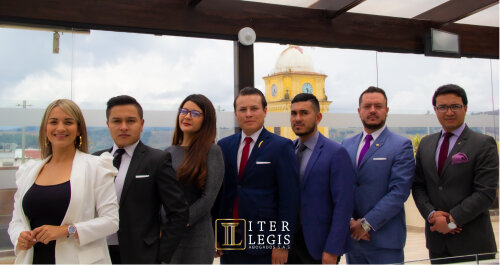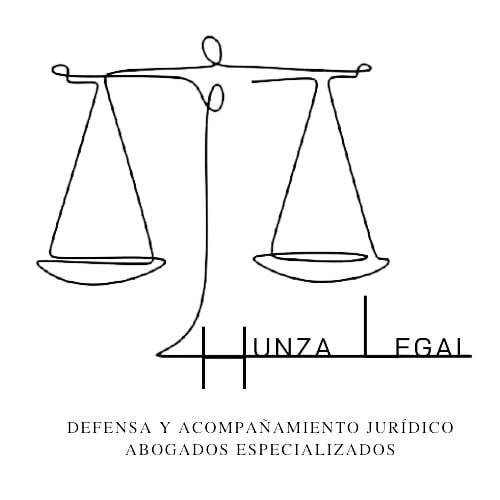Best Juvenile Law Lawyers in Tunja
Share your needs with us, get contacted by law firms.
Free. Takes 2 min.
List of the best lawyers in Tunja, Colombia
About Juvenile Law in Tunja, Colombia
Juvenile Law in Tunja, Colombia focuses on protecting the rights of children and adolescents, generally defined as those under 18 years old. The Colombian legal system recognizes minors as needing additional protections and has designed specific procedures for their welfare, rehabilitation, and justice. Key principles include the best interests of the child, the right to family, nondiscrimination, and participation. The regulatory framework is mainly based on the Colombian Children and Adolescents Code (Code 1098 of 2006), which sets the foundation for rights, responsibilities, and special treatment for minors in both civil and criminal contexts within the city of Tunja.
Why You May Need a Lawyer
There are several scenarios where individuals or families in Tunja might need the assistance of a lawyer specializing in Juvenile Law. These can include cases where a minor is accused of committing an offense and may be subject to the special juvenile criminal justice system, situations involving custody or visitation disputes, child abuse or neglect investigations, adoption processes, and matters concerning the protection of minors’ rights in schools or social services. Legal professionals provide guidance through complex procedures, represent minors or their families in court, and help ensure legal protections are enforced.
Local Laws Overview
Tunja, as the capital of Boyacá, follows national Colombian regulations concerning Juvenile Law, applying them through local courts and institutions. Key legal aspects include:
- The minimum age of criminal responsibility is 14 years old. Minors under 14 cannot be held criminally responsible but may receive protective intervention.
- The juvenile justice process focuses on education and rehabilitation rather than punishment.
- Custody, adoption, and child protection matters are handled by the Family Commissariat, the Colombian Institute of Family Welfare (ICBF), and judicial authorities.
- Minor victims of abuse, exploitation, or neglect receive special protections and can access support services.
- Parental authority is regulated to ensure children's rights are respected, with courts intervening when necessary.
Frequently Asked Questions
What is the age of majority in Colombia?
The age of majority in Colombia is 18 years. Before this age, individuals are considered minors and are covered by Juvenile Law provisions.
At what age can a minor be held criminally responsible?
Minors become criminally responsible at 14 years old in Colombia. However, their cases are handled in juvenile courts under procedures that prioritize rehabilitation over punishment.
What happens if a minor is accused of committing a crime?
If a minor between 14 and 18 is accused of a crime, their case is processed under the System of Criminal Responsibility for Adolescents. This system emphasizes restorative justice and reintegration.
Which authorities oversee the protection of minors’ rights in Tunja?
The Family Commissariat and the Colombian Institute of Family Welfare (ICBF) are the main local agencies ensuring minors’ safety, welfare, and legal rights in Tunja.
What can I do if I suspect a child is being abused or neglected?
Immediately contact the Family Commissariat, ICBF, or local police to make a report. These agencies are required to investigate and provide assistance while maintaining confidentiality.
How are custody disputes handled?
Custody cases are generally resolved by family courts, prioritizing the best interests of the child. Both parents may be given shared custody, but courts consider the child's welfare above all.
How does adoption work in Tunja?
Adoption is regulated by the ICBF, and applicants must go through a comprehensive legal and social process. This includes assessments to determine suitability, judicial authorization, and post-adoption follow-up.
Can a minor be represented in court without a lawyer?
While minors can in some cases be heard directly by judicial authorities, having a lawyer ensures their rights are fully protected and that the legal process is properly followed.
Are there special procedures for victims of violence or exploitation?
Yes. Colombia provides expedited and confidential procedures for minors who are victims of violence or exploitation, including protective measures and psychological support services.
What are my rights as a parent if I disagree with a decision made by local authorities?
You can appeal decisions issued by agencies like ICBF or the Family Commissariat. Legal representation can help you navigate appeals and safeguard your parental rights.
Additional Resources
- Family Commissariat (Comisaría de Familia Tunja): The first point of contact for family conflicts, custody, domestic violence, and protection of minors.
- Colombian Institute of Family Welfare (ICBF): Provides social services, child protection, and adoption processes.
- Defensoría del Pueblo: Offers free legal assistance and works to safeguard the rights of children and adolescents.
- Legal Clinics of Local Universities: Many universities in Tunja offer free legal advisory services, particularly for vulnerable families and juveniles.
- National Police for Minors (Policía de Infancia y Adolescencia): Handles urgent situations involving children’s safety and rights.
Next Steps
If you need legal help regarding Juvenile Law in Tunja, start by defining your issue clearly - whether it is criminal responsibility, custody, adoption, or child protection. Contact the appropriate authorities, such as the Family Commissariat or ICBF. Collect all relevant documents and evidence related to your case. Consider consulting with a local lawyer who specializes in Juvenile Law to discuss your situation and receive professional advice. You can also access free legal services provided by local universities or advocacy organizations. Acting promptly ensures that your rights, or the rights of the minor involved, are fully protected throughout any legal process.
Lawzana helps you find the best lawyers and law firms in Tunja through a curated and pre-screened list of qualified legal professionals. Our platform offers rankings and detailed profiles of attorneys and law firms, allowing you to compare based on practice areas, including Juvenile Law, experience, and client feedback.
Each profile includes a description of the firm's areas of practice, client reviews, team members and partners, year of establishment, spoken languages, office locations, contact information, social media presence, and any published articles or resources. Most firms on our platform speak English and are experienced in both local and international legal matters.
Get a quote from top-rated law firms in Tunja, Colombia — quickly, securely, and without unnecessary hassle.
Disclaimer:
The information provided on this page is for general informational purposes only and does not constitute legal advice. While we strive to ensure the accuracy and relevance of the content, legal information may change over time, and interpretations of the law can vary. You should always consult with a qualified legal professional for advice specific to your situation.
We disclaim all liability for actions taken or not taken based on the content of this page. If you believe any information is incorrect or outdated, please contact us, and we will review and update it where appropriate.










